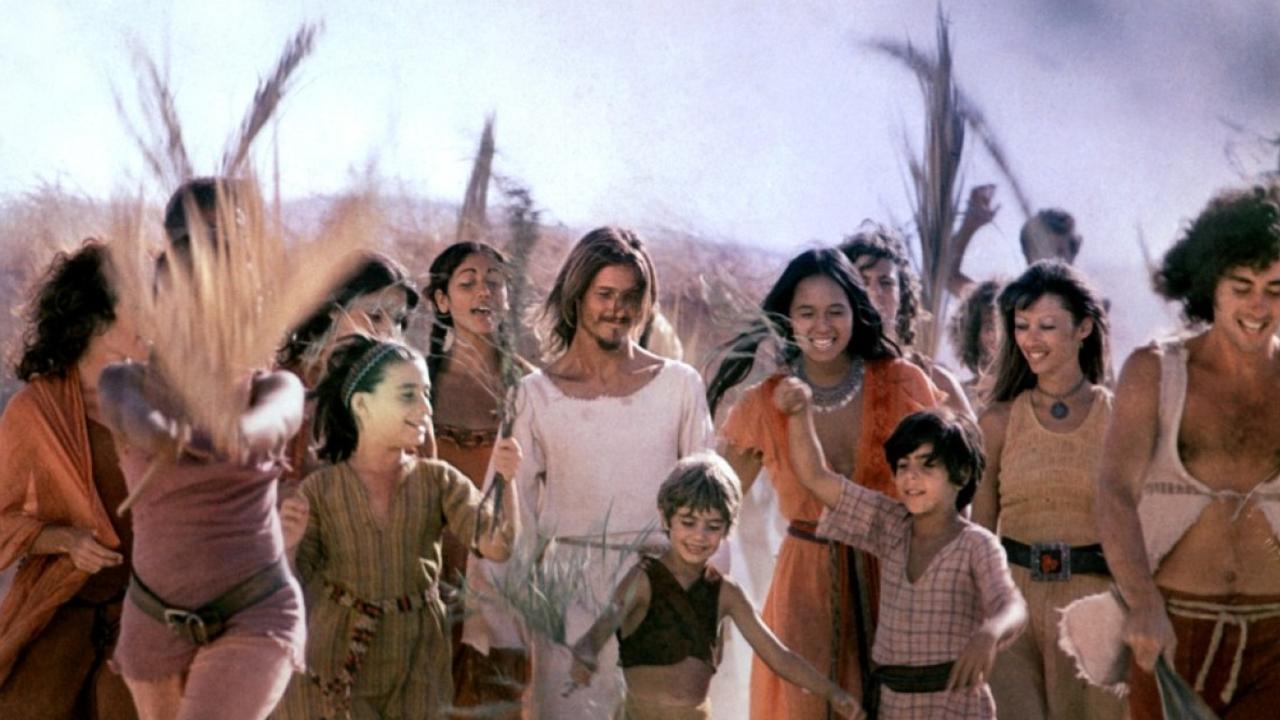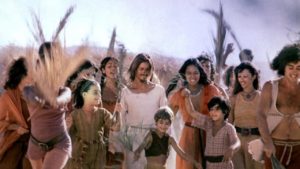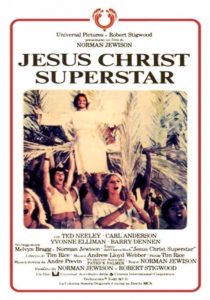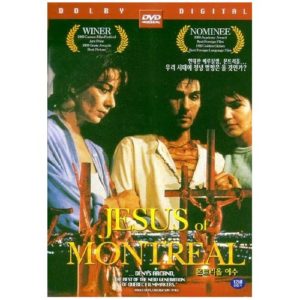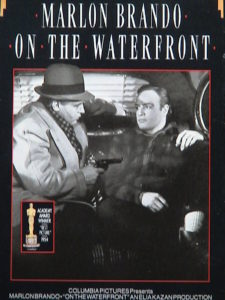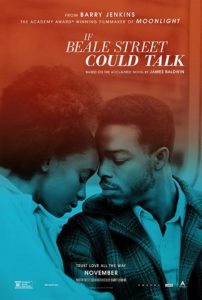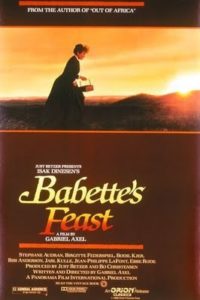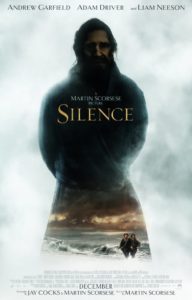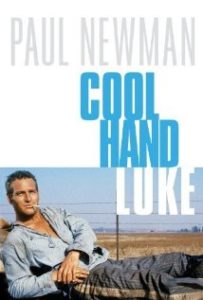April 14, Palm/Passion Sunday
Jesus Christ Super Star
The next day the great crowd that had come to the festival heard that Jesus was coming to Jerusalem. So they took branches of palm trees and went out to meet him, shouting, “Hosanna! Blessed is the one who comes in the name of the Lord—the King of Israel!”
Jesus found a young donkey and sat on it; as it is written:
“Do not be afraid, daughter of Zion. Look, your king is coming, sitting on a donkey’s colt!”
His disciples did not understand these things at first; but when Jesus was glorified, then they remembered that these things had been written of him and had been done to him. So the crowd that had been with him when he called Lazarus out of the tomb and raised him from the dead continued to testify. It was also because they heard that he had performed this sign that the crowd went to meet him. The Pharisees then said to one another, “You see, you can do nothing. Look, the world has gone after him!”
John 12:12-19
Although the young men who wrote this rock musical version about Christ are muddled in their theology, they still have gifted us with a challenging look at Jesus from a fresh perspective—that of Judas Iscariot. In Webber and Rice’s version Jesus has attained rock star status so that a huge crowd cheers him when he enters Jerusalem. He is riding a donkey, sending a signal that he comes in peace, but the crowd and Simon Zealotes, the disciple belonging to the party dedicated to fighting the Roman occupiers, ignore this. Shouting their Hosannas, the crowd asks Jesus to “smile at me.” The second time they declare, “You’re alright by me.” The 3rd time that line is, “Won’t you fight for me?” Picking up on this, Simon invites Jesus to take advantage of the crowd that makes his just as strong as “the filth from Rome who rape our country.” Again the crowd yells their devotion, and Simon, pointing to the large number of followers, tells his master to keep the crowd yelling. By adding “touch of hate at Rome” he will rise “to a greater power,” thereby earning “the power and the glory forever and ever.” With this reference to the Lord’s Prayer, Simon rests his case, but Jesus rejects this temptation to use violence to win political freedom. In a powerful song Jesus declares that no one, from Simon and the crowd to his enemies, understand what power and glory are. He ends by reiterating what we read several times in the gospels, “to conquer death you only have to die.”
This message of peace and the plea for nonviolence are often missed by fans of the film (or play) because of the razzle dazzle of the scene. And so is it too by many in our churches who sometimes identify Jesus with the American flag and are quick to support their nation’s wars unquestioningly. Christ refused violence as a means of liberation, and he still does, his teachings about turning the other cheek and loving our enemies by no means outdated by the technology of violence so prevalent today. Martin Luther King, Jr. lived long enough to see some of his followers, such as Stokely Carmichael turn away from nonviolence and embrace violent social change. We have seen that this was a tragic mistake, violence only bringing destruction down upon both the unjust and the just. So, on this Sunday, let us join in the singing, “Ride on, ride on in majesty.” As we celebrate Christ’s entry into the lair of his enemies, may we also celebrate the love and nonviolence which the Man on a donkey taught.
April 15
Then Jesus entered the temple and drove out all who were selling and buying in the temple, and he overturned the tables of the money changers and the seats of those who sold doves. He said to them, “It is written,
‘My house shall be called a house of prayer’;
but you are making it a den of robbers.”
Matthew 21:12-13
In this ”What would it be like if Jesus were to come to our city today?” film young actor Daniel is the stand-in for Jesus in modern day Montreal. He has been hired by a priest to revise the Passion Play that a popular shrine puts on every year during Lent. Daniel seeks out four other actors that he knows, two men and two women—one is a narrator for an astronomical show at a planetarium, one is dubbing the soundtrack of a porno film, one works at a soup kitchen, and one is being filmed in a perfume commercial. The latter is Mireille, who will be playing Mary Magdalene in the play. The pay is low, so Mireille plans to go to an audition for another commercial. At her request Daniel agrees to meet her at the site, but is late. The arrogant director treats all of the actors rudely as they dance to a jingle touting a brand of beer. When Mireille says that she does not have her dance togs with her, the director orders her to take off her street clothes so they can see her body. The girl does, except for her top, and then she is ordered to take it off as well. Embarrassed, Mireille hesitates, and at that moment Daniel arrives, telling her not to do it. The director is upset and tries to treat Daniel as rudely as she had the actors. He becomes angry in turn, threatening her so that she flees from him. He upsets the tables on which cans of the beer and equipment are set, even overturning the large TV cameras on tripods. It is bedlam as the scared crew joins the director in running out of the building.
This scene of an attack on crass commercialism and cruelty is a delightful updating of Jesus cleansing of the Jerusalem temple. Today as many people worship at their TV shrines as do at a building deemed holy. Ours is a culture of commercialism, with Easter more about colored eggs and bunnies than Jesus of Nazareth for many Americans (and Canadians). Daniel does exactly, I believe, what Jesus would have done, as evidenced by his driving out the money changers and animal sellers 2000 years ago. As his followers we must also resist commercialism which teaches the opposite of what he valued. He told us, “Do not store up for yourselves treasures on earth,” but every day we are told through thousands of media ads to do exactly that. May this last week in Lent be a time when we take a hard look at our values and see how they measure up to his. In the story of the cleansing of the temple, whose side would do what we value indicate that we would have been on?
A guide for this film is in my book Jesus Christ: Movie Star.
April 16
On the Waterfront
Then Jesus told his disciples, “If any want to become my followers, let them deny themselves and take up their cross and follow me. For those who want to save their life will lose it, and those who lose their life for my sake will find it.
Matthew 16:24-25
The mob-run union rules the New Jersey waterfront with such fear that few dockworkers dare oppose it. Those who do soon die “accidental” death. Terry Malloy knows that a co-worker named Dugan did not fall off the roof by accident, The man was about to testify about mob corruption to a Senate investigating committee, and so one night boss John Friendly had tricked Terry to go and call Dugan out where some goons were waiting to shove him off the roof. Terry is bothered in his conscience, but he says nothing when investigators question the dockworkers. Father Barry has been trying to organize the workers and persuade them to testify against the mob boss. When a crane operator dumps a load of liquor onto Dugan, who is working in the ship’s hold, the priest is summoned. After giving the slain man Last Rites, Father Barry stands up and looks around at the men watching him from the three levels of the ship.
Some people think the Crucifixion only took place on Calvary. They better wise up! Taking Joey Doyle’s life to stop him from testifying is a crucifixion. And dropping a sling on Kayo Dugan because he was ready to spill his guts tomorrow, that’s a crucifixion. And every time the Mob puts the pressure on a good man, tries to stop him from doing his duty as a citizen, it’s a crucifixion. And anybody who sits around and lets it happen, keeps silent about something he knows that happened, shares the guilt of it just as much as the Roman soldier who pierced the flesh of our Lord to see if he was dead.
The camera cuts to a close up of Terry’s face several times. We can see by his troubled expression that the priest is getting through to him. Terry will be torn between two loyalties—that between truth and justice preached by the priest, and that between John Friendly and the corrupt union that has given him a lowly job. Others will enter the story—on the one side his own brother who is a lawyer for the mob, and on the other Edie, the sister of Dugan. Should he testify before the Senate committee, and become a “rat,” “a snitch,” according to his friends? Or speak out, as Father Barry urges him. In one of their exchanges Terry says, “If I spill, my life ain’t worth a nickel, and Father Barry, echoing Jesus’ words, replies, “And how much is your soul worth if you don’t?”
Most of us will never find ourselves in such dramatic straits as Terry, but we will come across racist remarks or slanders against others in our groups, and thus face a choice similar to Terry’s. remain silent or speak out. Retain the good will of the group or risk being seen as a troublemaker. Go along to get along, or risk a cross? The hymn based on a poem by James Russell Lowell puts it well: “Once to every man and nation? Comes the moment to decide? In the strife with falsehood for the good or evil side…” As we approach Maundy Thursday and Good Friday, which we remind us that Jesus wrestled with his difficult choice, may we resolve that we will always strive for truth against falsehood and love against prejudice.
A guide for this film is in my book Films & Faith: Forty Discussion Guides.
April 17
For we wrestle not against flesh and blood, but against principalities, against powers, against the rulers of the darkness of this world, against spiritual wickedness in high places.
Ephesians 6:12
In this film version of James Baldwin’s novel all that Tish Rivers and Alonzo “Fonny” Hunt want is to be allowed to marry and raise a family. But this is not easy in the New York of the 70s for an African American couple who want to leave Harlem. They are turned down by prospective landlords until they finally come upon a Jewish property owner. The major obstacle to their happiness is a racist cop who has a grudge against Fonny, and so when a young Puerto Rican is raped, and Fonny is rounded up for a line-up, the cop almost forces the traumatized young woman to identify him as her assailant. Despite having a witness that can verify that Fonny was in a different part of Manhattan at the time of the rape, the (unseen in the film) white prosecutor has Fonny arrested, charged, and quickly convicted of the crime. Tish visits her lover in jail and never gives up hope that they will be able to live together again. We are not shown what indignities Fonny experiences in prison, but are given a hint of it in a flashback scene in which their friend Daniel is a dinner guest. Imprisoned on a false charge, he has just been released, now a broken man. “When you’re in there, they can do with you whatever they want. Yeah, I mean, what-ever they want,” Daniel says, adding that now he understands why Malcolm X called white men the devil. “Some of the things I’ve seen… I’ll be dreaming about it until the day I die.” Neither Daniel nor Fonny receive justice, but Fonny at least does survive his ordeal, the story demonstrating that the couple and their family’s love will heal his wounded spirit.
The novel is a truthful depiction of our world, broken by racism and other forms of sin. It is this world into which Christ came, bringing with him, no, embodying the love of God. Trish and Fonny, like the apostle Paul, wrestle “against powers, against the rulers of the darkness of this world, against spiritual wickedness in high places.” As followers of Christ, we must join this wrestling match. We who are white must struggle against vestiges of racism within ourselves—why even our language is weighted against African Americans, “white” being good and “black” meaning wrong. There are many opportunities afforded by good films to join with others to explore racism—The Hate U Give; BlacKkKlansman; Green Book; Monsters and Men; Blindspotting; Sorry to Bother You; Mudbound, to name just those reviewed in Visual Parables during the last year. During this Holy Week the one factor to keep uppermost in mind is that, as strong as the “principalities and powers are,” Christ is stronger. The day after tomorrow we will commemorate on Good Friday his crucifixion in which he is more than a victim of the “spiritual wickedness in high places,” he is the conqueror. Long may we sing with Isaac Watts his triumphant hymn with its words, “See, from His head, His hands, His feet,/ Sorrow and love flow mingled down;/ Did e’er such love and sorrow meet, or thorns compose so ruch a crown.”
April 18, Maundy Thursday
Steadfast love and faithfulness will meet; righteousness and peace will kiss each other.
Psalm 85:10
Gabriel Axel’s film about a French woman serving two Danish sisters has become a cult classic for Christians and non-believers alike. Philippa and Martina are the daughters of their widowed father, known to us simply as Pastor. He is the founder of an ascetic sect of the Lutheran Church, as stark as the rugged, bleak coast of Jutland, where they reside during the middle of the 19th century. The pastor is so religious that he named his daughters after the Founder of Lutheranism and after Luther’s chief assistant Philip Melanchthon. Each of the beautiful women when young turned down a suitor because they were so devoted to helping their father in his ministry, and after his death continued to care for the elderly church members. One stormy night a French widow arrives at their cottage bearing a note from one of the suitors back in Paris asking that she be taken in because her husband had been killed in a rebellion against the government. The sisters are too poor to afford a salary, so Babette begs to be taken on as an unpaid servant. Soon everyone is happy for this, because her cooking is so superior to the sisters’. When Babette also assumes the duty of marketing, one of the sisters says it is like magic how much more money they now have. Years pass. One day a letter arrives from Paris, informing Babette that the ticket purchased for her each year by a friend has paid off. She has won the French Lottery. As they help her count her money, the sisters assume their servant will be returning to France. Thus they are surprised when Babette asks to be allowed to produce the meal that will celebrate the 100th birthday of their father. The taken aback sisters are worried that it will be too fancy for their ascetic group, but when they consult with the members, all agree to go ahead, declaring that they will pay no attention to the food. On the night of the feast the guests arrive, joined by a high ranking general and his aunt, the latter having been an admirer of the Pastor. The General long ago was the shy officer who had admired one of the sisters but had been too tongue-tied to woo her. He is surprised by the splendid table setting, and as each incredibly savory dish is served, accompanied by a rare and appropriate wine, his amazement grows. The sect members at the beginning of the meal bring up old grudges and animosities as they try to ignore the food. With each course the General expresses his appreciation, even standing up and giving a short speech about grace, quoting the Pastor’s favorite Psalm passage, Psalm 85:10, “Steadfast love and faithfulness will meet; righteousness and peace will kiss each other.” The wine and good food have their effect on the rest of the diners, each telling the other they are sorry and forgiving one another.
There is much more to the above story, but this is enough to see that Babette’s feast was more than a fancy meal. It was a time of grace, a time of confessing and forgiving. Good food lovingly prepared can affect us so that the partakers are more gracious than usual to each other. This might underlie Christ’s decision to transform the Passover meal into a spiritual feast celebrating himself. As the divisions between the church members are overcome by Babette’s meal, so do we become one with those who gather to share the bread and the wine of the Eucharist. As the 3rd verse of Brian Wren’s hymn “I Come With Joy” puts it, “As Christ breaks bread and bids us share,/ Each proud division ends./ The love that made us makes us one,/ And strangers now are friends…”
The remaining 2 meditations will be added, one at a time, by Tuesday evening.
April 19, Good Friday
Then he said to them all, “If any want to become my followers, let them deny themselves and take up their cross daily and follow me. For those who want to save their life will lose it, and those who lose their life for my sake will save it. What does it profit them if they gain the whole world, but lose or forfeit themselves?
Luke 9:23-25
Sophie Scholl and her brother Hans almost literally do this in Marc Rothemund’s film set in WW 2 Germany. The sister and brother have joined the anti-Hitler student group The White Rose at the University of Munich where they are enrolled. When they are distributing flyers the school janitor sees them and calls for the police. The two are sent to prison and then interrogated. Sophie at first denies that she was involved, and then faced with overwhelming evidence, she tries to protect her brother by saying she was the one who wrot the flyer and was passing them around. Brother and sister are put on trial along with another student, Judge Roland Fresler, a virulent Nazi, scremas at the three, launching a tirade of abuse.
April 20
My God, my God, why hast thou forsaken me?
Why art thou so far from helping me, from the words of my groaning?
O my God, I cry by day, but thou dost not answer;
and by night, but find no rest.
Psalm 22:1-2
On this Holy, or as some call it, Black Saturday, Jesus’ body is in the tomb. His compassionate voice is now silent. And so it seems appropriate that we turn to a film named Silence for inspiration. Set in Japan in the 17th century, it is the story of two Jesuit priests, Father Sebastião Rodrigues and Father Francisco Garrpe, who travel to Japan to try to find what has happened to their mentor Father Cristóvão Ferreira. They hope to disprove the rumor that he has recanted his faith, married, and sired a son. Francis Xavier had begun missionary work in Japan in 1549, resulting in a flourishing Catholic enclave there, said to number between 200 & 300K. Then the shoguns, fearing that the Europeans would take over their country as they had in the Americas, banned Christianity on pain of death. This continues, our two priests discover. They are taken in by villagers eager to participate in a mass, but they have to stay in hiding all of the time. An inquisitor visits villages, testing suspected Catholics by demanding that they step on a fumi-e, a small wood or stone plaque with an image of the Crucifix or Mary on it. If the person hesitated or refused, it meant they were a Christian, subject to the death penalty. While hiding the priests see Christian villagers tied to wooden crosses on a beach, and the tide comes in to slowly drown them. The film is not an easy one to watch with its many scenes of torture and death, with no dashing hero coming to rescue the faithful and punish the cruel tormentors. Fr. Rodrigues is forced to question his faith, to wonder where God is as his children die. He says, “In the face of this terrible and merciless sacrifice offered up to Him, God has remained silent.” Captured and imprisoned he is tormented by the torture and deaths of Japanese Christians. Their martyrdom, he is told, can be prevented—just renounce Christ, and the executions will stop. After he believes that he has heard Jesus tell him to do so, he does renounce his faith to his captors. He is freed and given a Japanese name and allowed to work. The ending of the film is ambiguous enough to be interpreted in more than one way. Like the rest of the film, it raises questions that raise still more questions, rather than presenting answers—answers to such problems as pain and undeserved suffering and prayers that seem to go unanswered.
During this day of death, when Christ’s body remains hidden in the tomb, this is a suitable film to watch, and its questions are challenging ones to ponder, even though we may never come to understand why God seems so silent to the miseries besetting his children. There are times when all we can cling to is our faith that God is love, and that the Friday cross is not the last act in the life of Christ. I did not preface Friday with “Good” because Sunday with its Good News has not yet come. But it will!
April 21, Easter Sunday
He went to Nazareth, where he had been brought up, and on the Sabbath day he went into the synagogue, as was his custom. He stood up to read, and the scroll of the prophet Isaiah was handed to him. Unrolling it, he found the place where it is written:
“The Spirit of the Lord is on me,
because he has anointed me
to proclaim good news to the poor.
He has sent me to proclaim freedom for the prisoners
and recovery of sight for the blind,
to set the oppressed free,
to proclaim the year of the Lord’s favor.”
Luke 4:16-18
They said to each other, “Did not our hearts burn within us[e] while he talked to us on the road, while he opened to us the scriptures?” And they rose that same hour and returned to Jerusalem; and they found the eleven gathered together and those who were with them, 34 who said, “The Lord has risen indeed, and has appeared to Simon!”
Luke 24:32-33
A guide for this film is in my book Films & Faith: Forty Discussion Guides and in Jesus Christ: Movie Star.
Lucas Jackson is an unlikely Christ figure. Serving time on a Southern chain gang for the awesome crime of unscrewing the heads off parking meters, he could have done his time and gone back to society. But Luke is a rebel who hates rules that confine him. And he has an irrepressible smile that irritates his captors, especially the Captain, head of the prison farm. He also alienates the prisoners at first, until his losing boxing match with a big man called Dragline. The larger man beats Luke, but the battered man will not stay down on the ground, earning the respect of the victor and the other prisoners. Luke earns his title by winning a poker game on a bluff, so the other prisoners begin to look up to him and take their cues from him on how to react to the guards. His fearlessness during a lightning storm and toward the guards becomes such a threat to his captors that Boss Godfrey, dubbed “the man with no eyes” because he always wears silvered sunglasses, keeps a close watch on the rebellious prisoner. Luke runs away twice, becoming an even more of a hero to the men. However, unlike Christ, Luke does not want the mantle of leadership, telling the men, “Don’t feed off me.” When he is broken by the guards’ savage treatment, the disillusioned men do turn from him. Then he escapes a third time by stealing a dump truck. Dragline jumps in with him, but after he makes some foolish suggestions, Luke is able to part from him and finds shelter for the night in an old empty church. He looks around, saying, “Anybody here? Hey, Old Man. You home tonight? Can You spare a minute? It’s about time we had a little talk.” He pauses, then says O.K., and then gets down on his knees, assuming the traditional posture of prayer by folding his hands and closing his eyes. No response. Luke opens one eye and looks upward. From his point of view we see only empty rafters. Still no answer. Another shot of empty, silent rafters. Luke confesses that he has been a pretty hard case, but you must admit, he tells God, you haven’t dealt me much of a hand. No answer. He sighs and regains his feet, exclaiming, “O.K., I guess I’ll have to find my own way.” Headlights shine through the window, and Dragline appears, calling softly to him, “Luke, Luke.” Luke looks up to the rafters and says, “Is that your answer, Ole Man? I guess you’re a hard case, too.” Dragline had been captured and tricked into revealing the whereabouts of his buddy by the false promise of lenient treatment. Dismissing his friend, Luke looks out the window at the squad cars with their red lights and men with their guns. He goes to the door where his face is tinted by the blood-red lights and says mocking the earlier words of the Captain, “What we have here is failure to communicate.” A shot rings out, and Luke’s smile vanishes as he falls. Dragline is so enraged that he attacks the killer, the Man With no Eyes, knocking the sunglasses off. As the cars drive away the glasses are crushed. Against the advice of the police, the Captain insists on taking the critically wounded Luke back to the prison farm, rather than to a near-by hospital, thus insuring Luke’s death. The Gethsemane, Betrayal, and Good Friday counterparts are followed by the film’s Easter scene. The prisoners are cutting weeds along the road that passes by the old church. The prisoners ask Dragline to tell them about Luke when they pause for a rest across from the church. “He was smiling… That’s right. You know, that, that Luke smile of his. He had it on his face right to the very end. Hell, if they didn’t know it ‘fore, they could tell right then that they weren’t a-gonna beat him. That old Luke smile. Oh, Luke. He was some boy. Cool Hand Luke. Hell, he’s a natural-born world-shaker.” During this we are treated to a series of flashbacks, all showing Luke’s defiant smile. Thus, is born the myth of Luke, the world-shaker, one that probably will be told and retold as long as that prison farm exists..
As Christians we regard the story of Christ as more than a myth, of course. We believe that Easter was born amidst history, as our Apostle’s Creed puts it, “…suffered under Pontius Pilate, was crucified, dead and buried; He descended into Hell; the third day He arose again from the dead…” In Luke’s story we can see the effects of Christ living among us. He frees us from fear; dispels misconceptions of God; and, as in the case of Dragline’s attack on the guard, enables us to resist the power of evil. And far more than Luke, Christ promises us a life beyond death. He promised his disciples that he would be with them to the end of the world, and so today we find many references to him when we look for them—in song and poetry, in novels and films, even in a chain gang film featuring a rebel who could not be beaten.
A guide for this film is in my book Films & Faith: Forty Discussion Guides and in Jesus Christ: Movie Star. For more on Gethsemane and Easter, go to the title and click on it to read the long film review.
